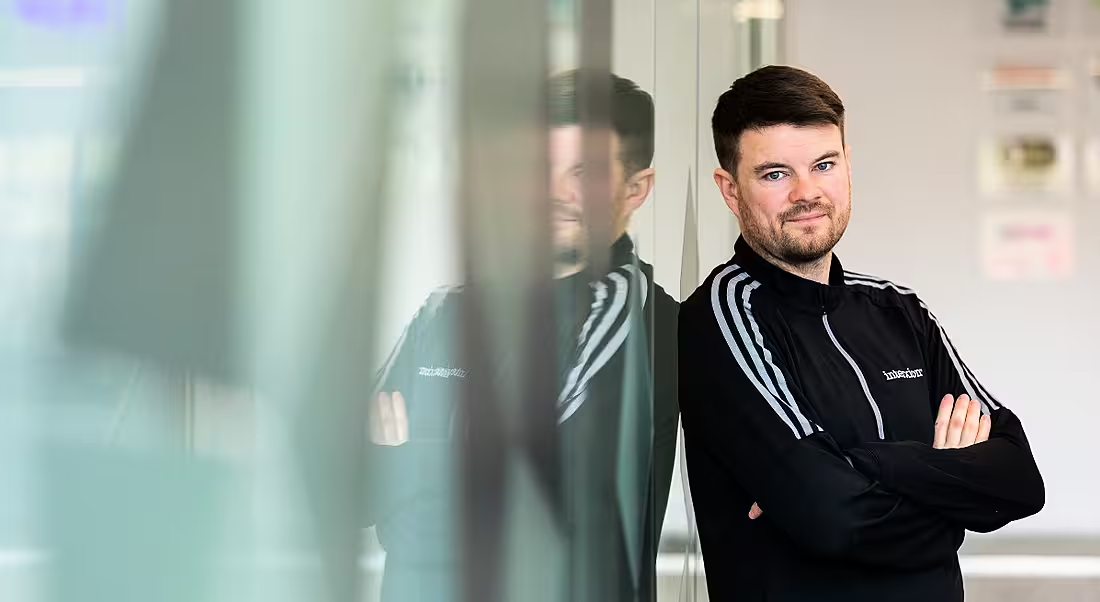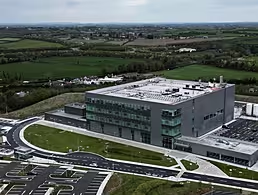In a Q&A with Robert Garvey, a senior electrical engineer at Interxion, we find out how he overcame obstacles in his career, and why he doesn’t believe in ‘impossible’.
Robert Garvey joined Interxion Ireland in 2015 and is now a senior site electrical engineer with the organisation.
Garvey left school before completing his Leaving Certificate examinations to start working as an apprentice electrician. This experience encouraged his aspiration to become an electrical engineer.
In 2008, following the economic downturn and building crash in Ireland, Garvey took control of his education and started studying electrical and control automation engineering in Dublin Institute of Technology (now TU Dublin). Following the completion of his studies, he moved to Australia where he began his career as an electrical engineer with NT Automations, and where he developed insights from an international perspective early on in his career.
Upon returning to Ireland, he joined Interxion as an electrical operations engineer and is now a leading member of Interxion’s Irish team.
How did the 2008 crash directly affect you and other electricians, and how important was it for you to return to education?
The recession meant that my career opportunities as an electrician were limited, the demand for electricians decreased significantly from the highs we had seen and I was competing with electricians who had years of experience. This feeling and the changing environment spurred me to essentially recession-proof myself.
I decided to enhance my long-term career opportunities and take control of my career and education. I started studying electrical and control automation engineering in Dublin Institute of Technology. This opened up a whole new world of opportunities to me that I couldn’t have otherwise availed of.
What did your experience in Australia teach you about engineering from an international perspective? Did you bring back some practices to Ireland that weren’t here before?
I moved to Australia very early in my career, as a new graduate, so for me it wasn’t as much about getting an international perspective as getting some quality on-the-job experience under my belt.
When I left Ireland, it was still a struggle to get a job in my field. Moving to Australia gave me a foot in the door to be an engineer, which can often be the hardest thing to do after you graduate, particularly in a post-recession time.
What I did learn in my move is just how valuable an education is. Although I trained in Ireland my degree was a huge benefit to me in Australia and I had people headhunting me there because of this.
I also gained on-the-job experience that is still relevant in my work today with Interxion. My degree would have covered cooling systems, and when I worked in Darwin I was able to really use this learning and develop it further given the hot climate there. Now, in my work in the data centre industry in Ireland, cooling systems are hugely important to my everyday role.
‘I don’t like to hear the word impossible, it’s not in my vocabulary. It just drives me on to make it possible’
– ROBERT GARVEY
What do you enjoy most about your current role?
We’re such an ambitious team that everyone pushes the people around them to do better. From an engineering perspective we can come across a variety of different problems and breaking these down as a team and working through them can be really interesting. When it comes to the day to day, I don’t like to hear the word impossible, it’s not in my vocabulary. It just drives me on to make it possible.
For me, this doesn’t feel like work. I love getting up in the morning. It feels more like a family-orientated job and I think that’s why I enjoy it so much.
How do you balance constantly learning about new technology developments and your day-to-day job?
It can be very hard to do the day job and stay up to date on the latest technology developments, particularly in the data centre industry where it’s 24/7 and technology is always changing.
I’ve always tried to take advantage of every opportunity for training internally here in Interxion, but I would also do a lot outside of the typical nine-to-five hours. I’ve completed some night courses in Griffith College and I regularly use YouTube, which has some great learning resources. I find that if I am staying late in work, I’m doing it to try and stay up to date on the sector.
I am a curious person and I try not to restrict myself to just electrical engineering. I look to what’s happening in other types of engineering within the data centre industry and broaden my experience and understanding.
What advice would you give to anyone hoping to follow in your footsteps as an electrical engineer?
I would completely recommend a career as an engineer; it opens career opportunities to you with a huge variety in the areas that you can specialise in. Engineering will continue to be a huge employer in Ireland, providing a significant return to Ireland Inc.
I can’t emphasise enough the value of a good education in helping career progression. It’s never too late to return to education, and staying up to date on the industry is key once you’re qualified.




